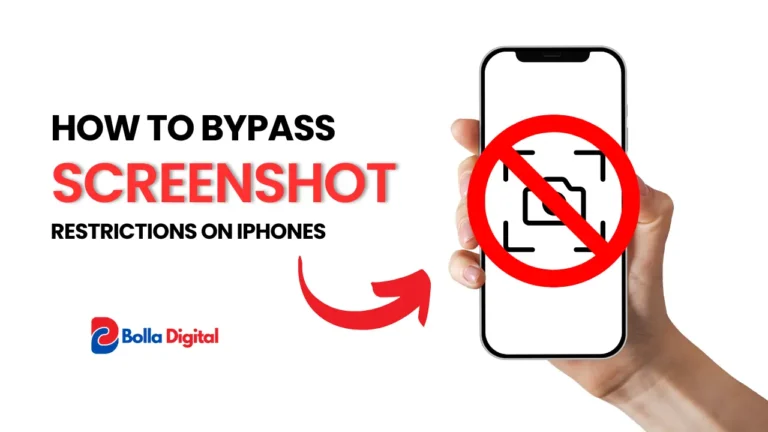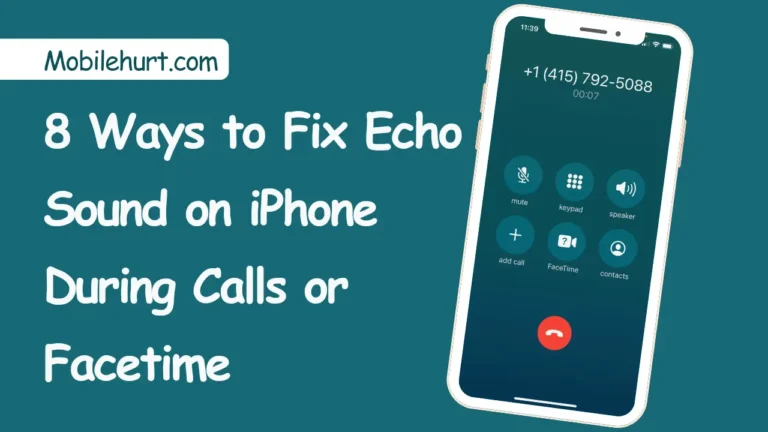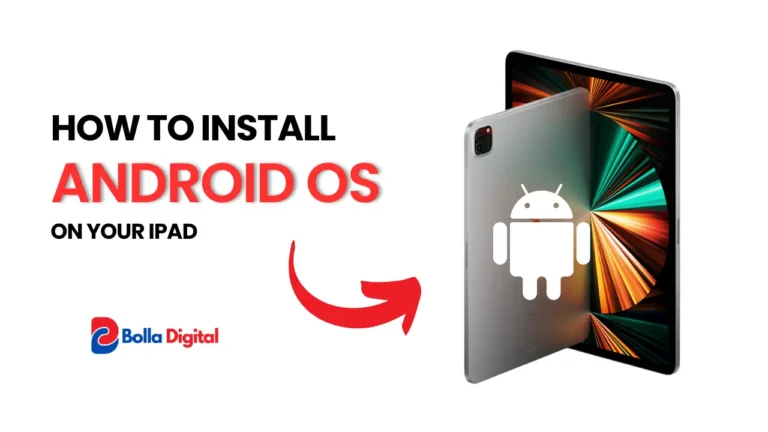Tired of seeing the “Ad Blockers Are Not Allowed on YouTube” message? You’re not alone. YouTube has been cracking down on ad blockers in recent months, but there are still ways to bypass the restrictions and watch your favorite videos ad-free.
In this blog post, we’ll show you how to fix the “Ad Blockers Are Not Allowed on YouTube” problem on both desktop and mobile devices. We’ll also cover some of the best ad blockers to use for YouTube, and how to troubleshoot any problems you may encounter.
Whether you’re a casual YouTube viewer or a power user, this blog post is for you. Read on to learn how to get back to watching your favorite videos without any interruptions.
Why is “Ad Blockers Are Not Allowed on YouTube” ?
YouTube does not allow ad blockers because they reduce the amount of revenue that the company generates from advertising. YouTube Premium is a paid subscription service that offers an ad-free experience, but it is not affordable for everyone.
YouTube argues that ads are necessary to support the platform and its creators. However, many users find ads to be intrusive and annoying. They also argue that YouTube shows too many ads, and that some of the ads are inappropriate.
Despite YouTube‘s efforts to block ad blockers, there are still ways to bypass the restrictions. There are a number of ad blockers that are specifically designed for YouTube, and there are also some general-purpose ad blockers that work on YouTube as well.
Some reasons that’s why people uses ad blocker
- To improve the user experience by removing intrusive and annoying ads.
- To protect their privacy by preventing advertisers from tracking their browsing activity.
- To save bandwidth and improve page loading times.
- To block malware and other malicious content.
Also Read: How to Reset Apple AirPods, AirPods Pro and AirPods Max: Step-By-Step Guide
How to fix the “ad blockers not allowed on youtube” error
Solution 1. Disabling the Ad Blocker Extension From Chrome Browser
Step-1. Go to Your chrome browser and click on the “extensions” icons. As you shown below.

Step-2. Here you will see the list of download extensions. But you need to find the “Ad Blocker” extension.
Step-3. Now, go to the “Ad Blocker” Extension’s setting by right click on the extension.

Step-4. To disable the ad blocker click on “disable filtering on this site” or choose another one option if you don’t find above option “Remove From Chrome”.
Now, you will easily access your youtube without any interuptions.
Solution-2. By Purchasing Youtube Premium Subscriptions
To purchase a YouTube Premium, you can follow these steps:

- Go to the YouTube website or app.
- Sign in to the Google Account where you want to subscribe.
- Click or tap your profile picture in the top right corner of the screen.
- Select “Youtube Premium” from the menu.
- Click or tap the “Get youtube Premium” button next to the subscription plan you want.
- Enter your payment information and complete the purchase.
You can choose from three different YouTube subscription plans:
- Individual: $13.99/month
- Family: $22.99/month (up to 5 family members)
- Student: $7.99/month (eligible students only)
All YouTube subscriptions include the following benefits:
- Ad-free videos
- Background playback
- Video downloads
- Access to YouTube Originals
YouTube also offers channel memberships, which allow you to support your favorite creators on a monthly basis. Channel memberships come with a variety of perks, such as exclusive videos, live chats, and badges.
To purchase a channel membership, go to the channel’s page and click or tap the “Join” button. You can choose from different membership tiers, each with its own set of benefits.
You can cancel your YouTube subscription at any time. To cancel your subscription, go to your paid memberships page and click or tap the “Cancel membership” button.
This method is safe and trustworthy.
Also Read: How to unlock icloud in any iphone
Can YouTube ban you for using ad blocker?
Yes, YouTube can ban you for using an ad blocker. The company’s terms of service state that “you agree not to use any device, software, or other means to interfere with or circumvent the display of advertisements on the Service.”
YouTube has a number of ways to detect whether or not you are using an ad blocker. One way is to check for known ad blocker extensions in your web browser. Another way is to monitor your network traffic for patterns that are associated with ad blocking.
If YouTube detects that you are using an ad blocker, you may be shown a warning message. If you continue to use an ad blocker, YouTube may block your video playback or even ban your account.
However, it is important to note that YouTube has not been known to ban users for using ad blockers on a large scale. The company is more likely to target users who are also violating other terms of service, such as by posting spam or copyrighted content.
If you are concerned about being banned from YouTube for using an ad blocker, you can try using a less well-known ad blocker or a general-purpose ad blocker that has a YouTube whitelist. You can also try using a VPN to hide your IP address from YouTube.
Ultimately, the decision of whether or not to ban a user for using an ad blocker is up to YouTube. The company has not released any specific information about its policies on ad blocking.
Why are ad blockers not allowed on YouTube?
Ad blockers are not allowed on YouTube because they reduce the amount of revenue that the company generates from advertising. YouTube Premium is a paid subscription service that offers an ad-free experience, but it is not affordable for everyone.
YouTube argues that ads are necessary to support the platform and its creators. However, many users find ads to be intrusive and annoying. They also argue that YouTube shows too many ads, and that some of the ads are inappropriate.
Despite YouTube’s efforts to block ad blockers, there are still ways to bypass the restrictions. There are a number of ad blockers that are specifically designed for YouTube, and there are also some general-purpose ad blockers that work on YouTube as well.
Do any ad blockers work on YouTube app?
Yes, there are a few ad blockers that work on the YouTube app, but it’s important to note that YouTube is constantly working to block ad blockers, so there is no guarantee that any ad blocker will work all the time.
Here are a few ad blockers that are known to work on the YouTube app:
- AdGuard: AdGuard is a popular ad blocker that works on a variety of devices, including Android and iOS. It has a number of features, such as DNS filtering, VPN, and ad blocking for specific apps.
- Blokada: Blokada is a free and open-source ad blocker that works on Android and iOS. It uses DNS filtering to block ads and trackers.
- DNS66: DNS66 is a free and open-source ad blocker that works on Android and iOS. It uses DNS filtering to block ads and trackers.
- NewPipe: NewPipe is a third-party YouTube app that has built-in ad blocking. It is available for Android devices.
- Pure Tuber: Pure Tuber is another third-party YouTube app that has built-in ad blocking. It is available for Android devices.
It is important to note that using ad blockers on the YouTube app may violate the company’s terms of service. If YouTube detects that you are using an ad blocker, you may be shown a warning message or even blocked from using the app.
If you are concerned about being banned from YouTube for using an ad blocker, you can try using a less well-known ad blocker or a general-purpose ad blocker that has a YouTube whitelist. You can also try using a VPN to hide your IP address from YouTube.
FAQs
Are ad blockers allowed on YouTube?
No, ad blockers are not allowed on YouTube. However, there are some ad blockers that still work on YouTube, but there is a risk of being banned from the platform if you are detected using an ad blocker.
Is AdBlock blocking YouTube ads?
Yes, AdBlock is still blocking YouTube ads for most users. However, it is important to note that YouTube is constantly working to block ad blockers, so it is possible that AdBlock may not work for everyone all the time.
More Tips:
- Utilizing ad blockers while using YouTube goes against YouTube’s Terms of Service.
- YouTube depends on advertising income to sustain its operations and compensate content creators.
- Individuals who opt to employ ad blockers on YouTube might inadvertently contribute to the emergence of pirated content, which can negatively affect the livelihoods of content creators.
- YouTube Premium is a subscription-based service that provides an ad-free viewing experience, background playback, and access to exclusive content.







